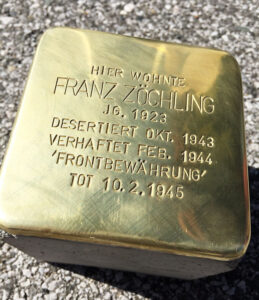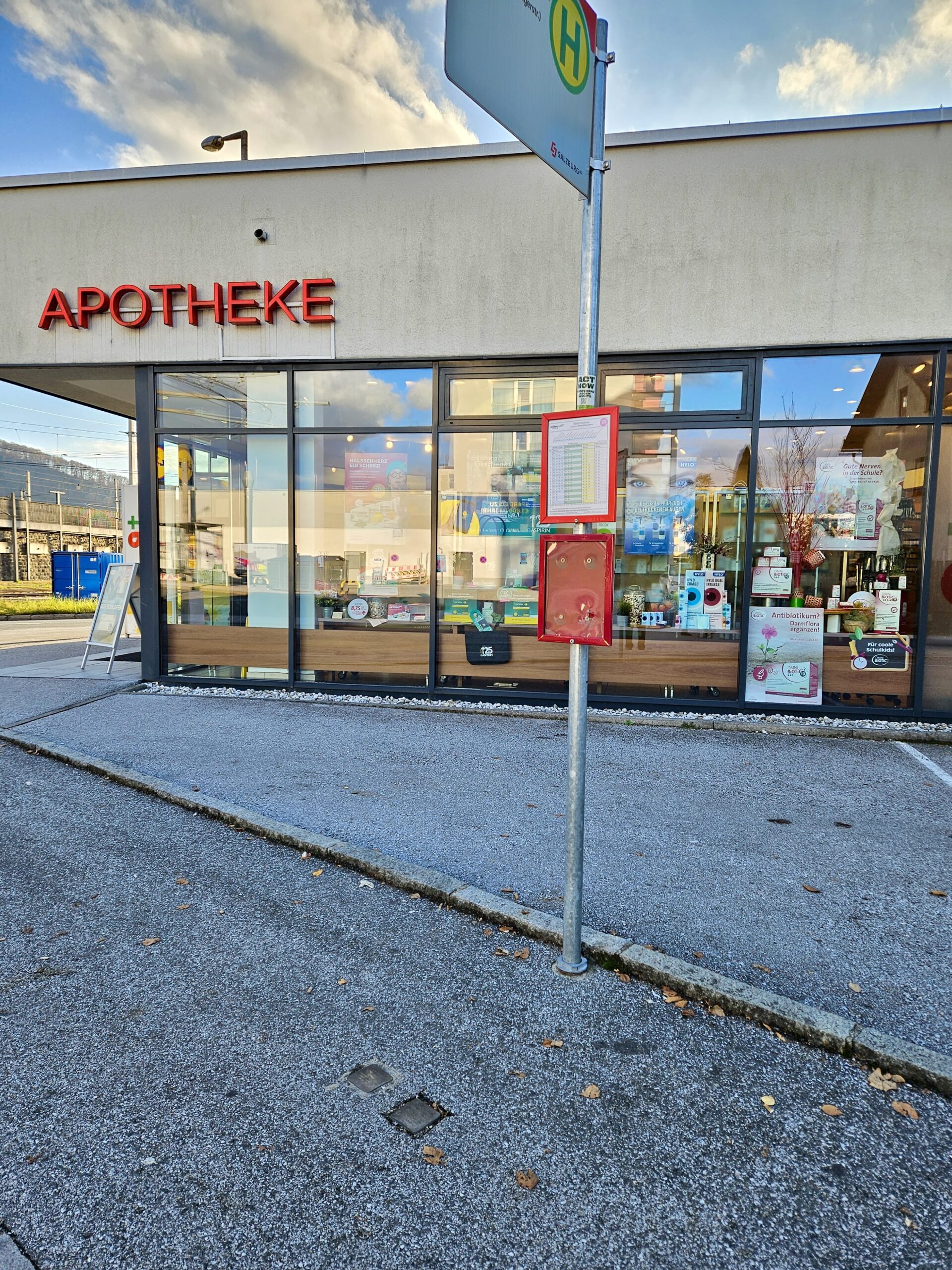Franz ZÖCHLING, was born in Itzling (which was annexed to Salzburg in 1935) on May 7, 1923 and was baptized I the Roman Catholic Church.
He was the second of the three children of the unskilled worker Johann Zöchling and his wife Maria. The working class family lived near the Salzburg Main Station in Itzling.
The house at 39 Bahnhofstraße, where the Zöchlings had lived since 1921, belonged to the brewery owners Sigmund and Richard Hatschek.
After the Nazis took over Austria their holdings were designated as »Jewish properties« and placed under receivership for the use of the German Reich Railways.
The traces left by Franz ZÖCHLING in Salzburg testify that he was not allowed to grow up in peace and freedom and to learn a bourgeois profession. He was an 18 year old laborer when he was drafted into the Reich Labor Service in 1941 and then into the German army.
He served in the 136th Mountain Infantry Regiment from Salzburg and fought against Soviet troops on the »Arctic Ocean Front«. Franz ZÖCHLING was wounded in combat there and was promoted to corporal. In October 1943 he was granted a three week sick leave.
Until then Franz ZÖCHLING followed the orders of his military superior. We don’t know what happened during his home leave to lead him to refuse further service. What we do know is that his brother Johann also served on the front, that his father died and that his uncle Georg HONEDER, who had been a patient in the Salzburg State Psychiatric Hospital, was murdered in the Hartheim Castle extermination center.
In any case, Franz ZÖCHLING decided not to go back to his unit after his sick leave and stayed with his widowed mother in Salzburg. He hoped to survive the war by staying in Salzburg with forged papers, but it didn’t work.
On February 2, 1944 he was arrested in Salzburg.
On February 29, 1944 Franz ZÖCHLING was brought before a court martial of the 418th Division that sat in the Court of Justice on the Rudolfsplatz – which was called the Georg-von-Schönerer-Platz while the Nazis ruled Salzburg.
A Salzburg attorney named Dr. Ferdinand Voggenberger, served as the prosecutor in the court martial proceedings, while a local judge named Dr. Julius Poth served as judge presided. »In the name of the German People!« the court martial sentenced Franz ZÖCHLING to loss of rank and three and a half years imprisonment for »absence without leave« and other crimes.
Imprisonment in wartime might seem more attractive than serving in combat so Franz ZÖCHLING, like many of his counterparts, was »paroled before the enemy« and shipped off to a punishment battalion at the front. We don’t know precisely what he was assigned to do as punishment in the war of extermination in the east, building bunkers and fortifications or clearing mines and recovering bodies.
All we know is that after the end of the war he was listed as missing in action. As a result, there is no record of his death in the Salzburg police registration files, in contrast to the documentation showing that his mother and siblings survived the terror years.
Recent research has discovered the fact that on February 10, 1945 the missing 21 year old soldier Franz ZÖCHLING died in a Soviet POW camp near Tiraspol in Transnistria which was a part of Bessarabia that had been occupied by Soviet troops in the previous Spring.
The occupation by the Soviet army ended the ongoing mass murders of Jews there under German and Romanian rule. (Transnistria is now an »independent« territory between Moldavia and Ukraine whose independence is only recognized by Russia).
Sources
- Resistance and Persecution in Salzburg 1934-1945 [Widerstand und Verfolgung in Salzburg 1934-1945], Vol. 1, Vienna 1991, p. 595
- The court-martial verdict of the 418th Division
- Stadt- und Landesarchiv Salzburg
- Archives of the Salzburg Archdiocese
- Salzburg city and state archives
Research: Esche Schörghofer
Translation: Stan Nadel
Stumbling Stone
Laid 24.09.2019 at Salzburg, Bahnhofstraße 39




